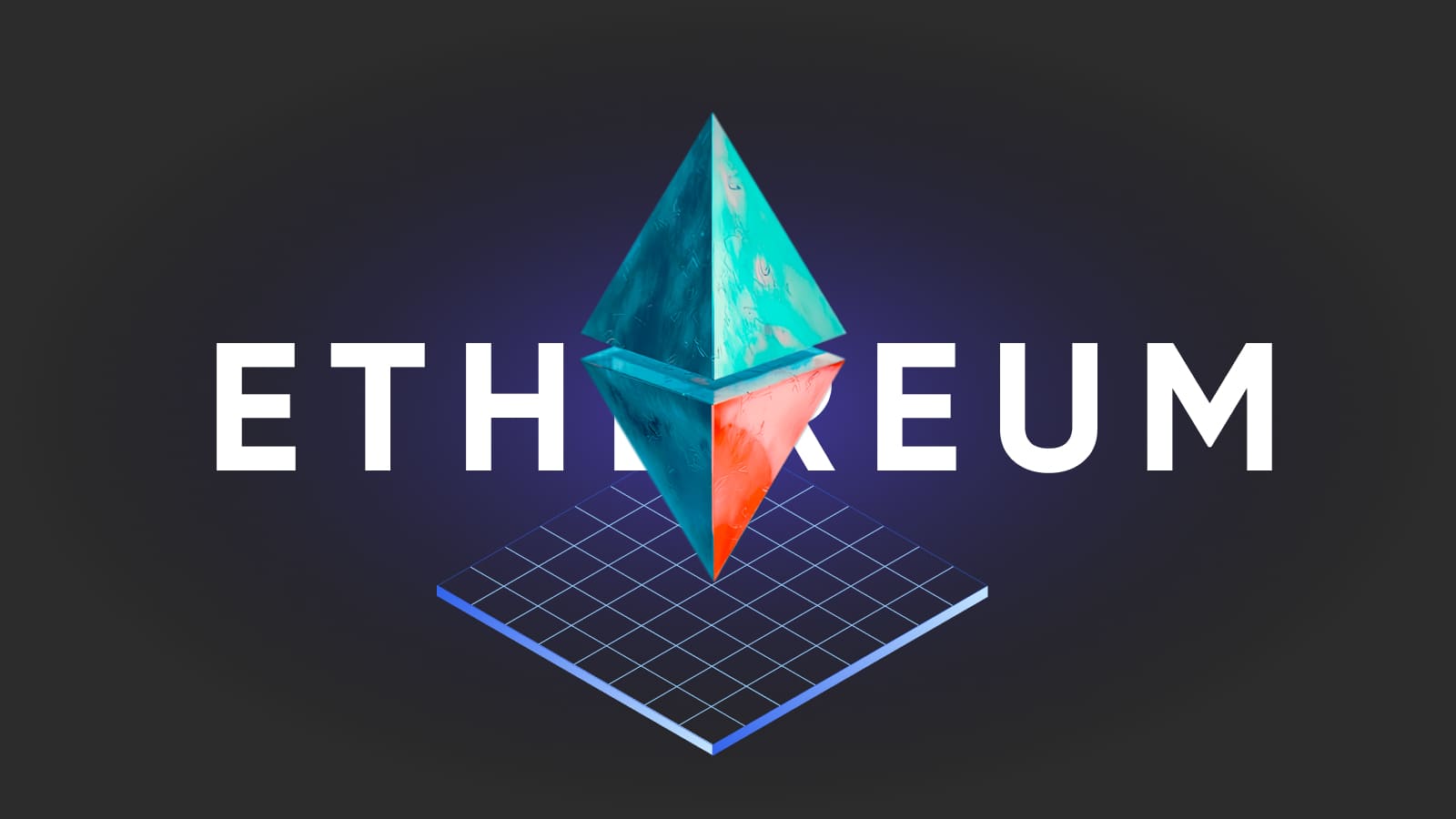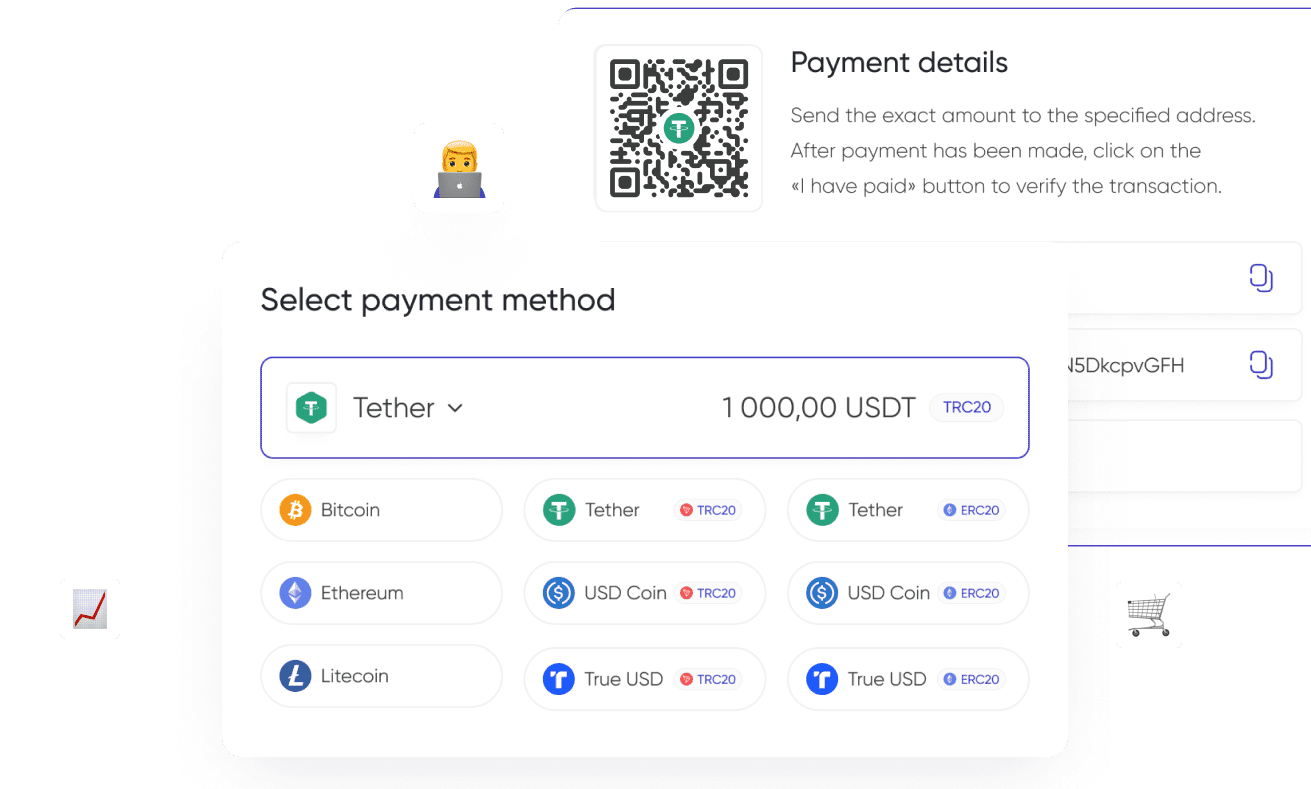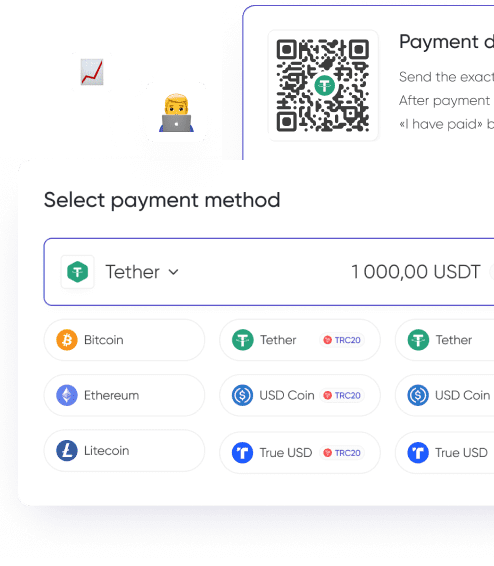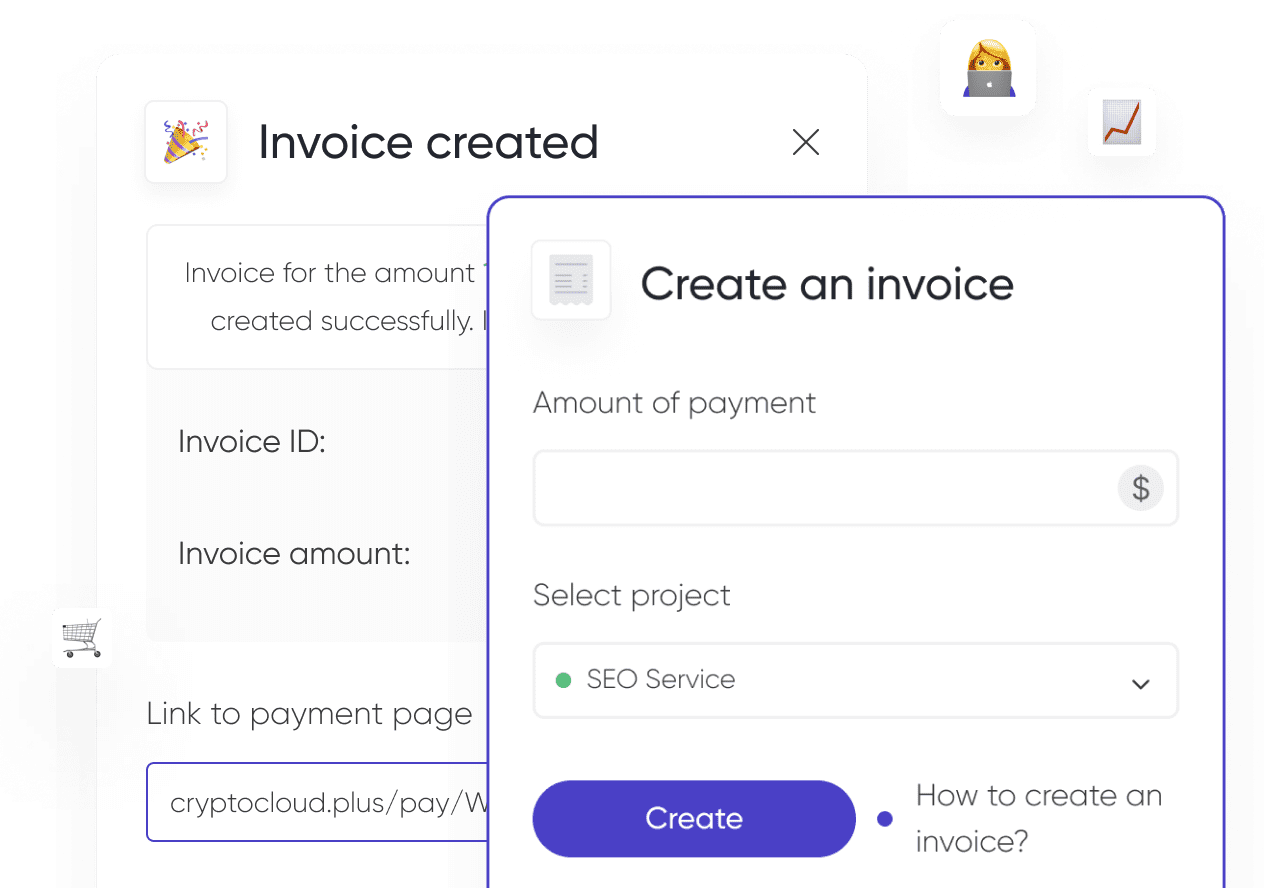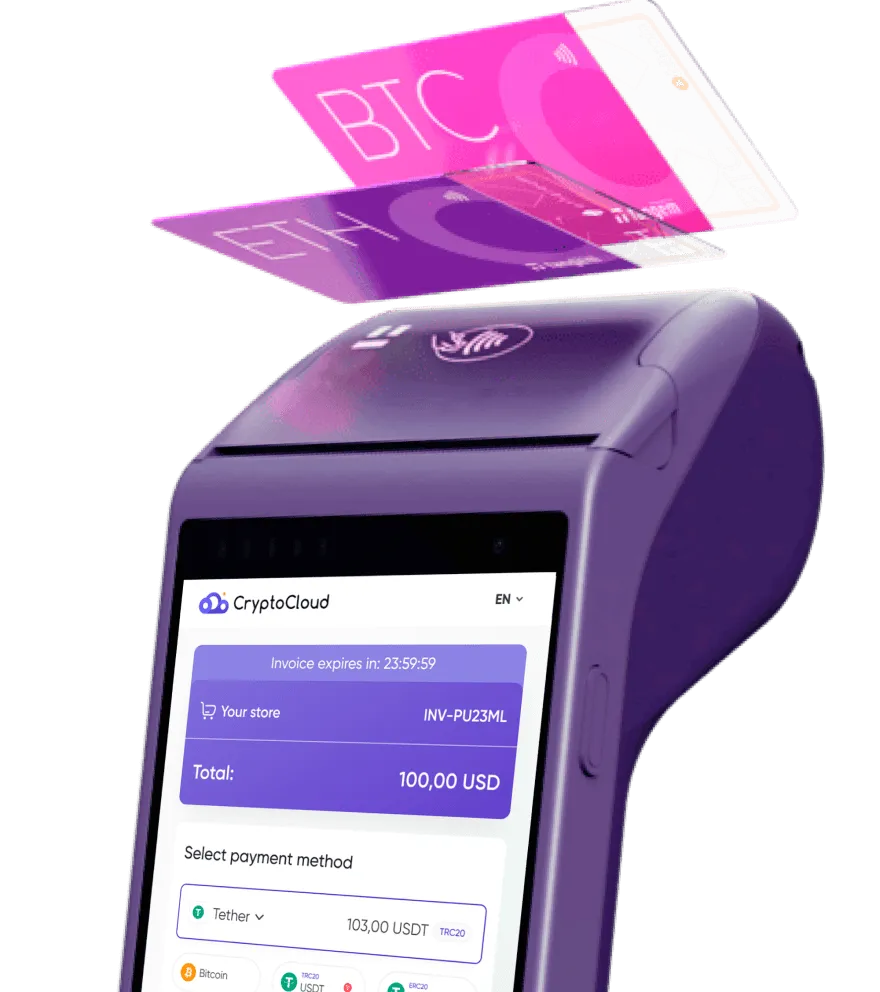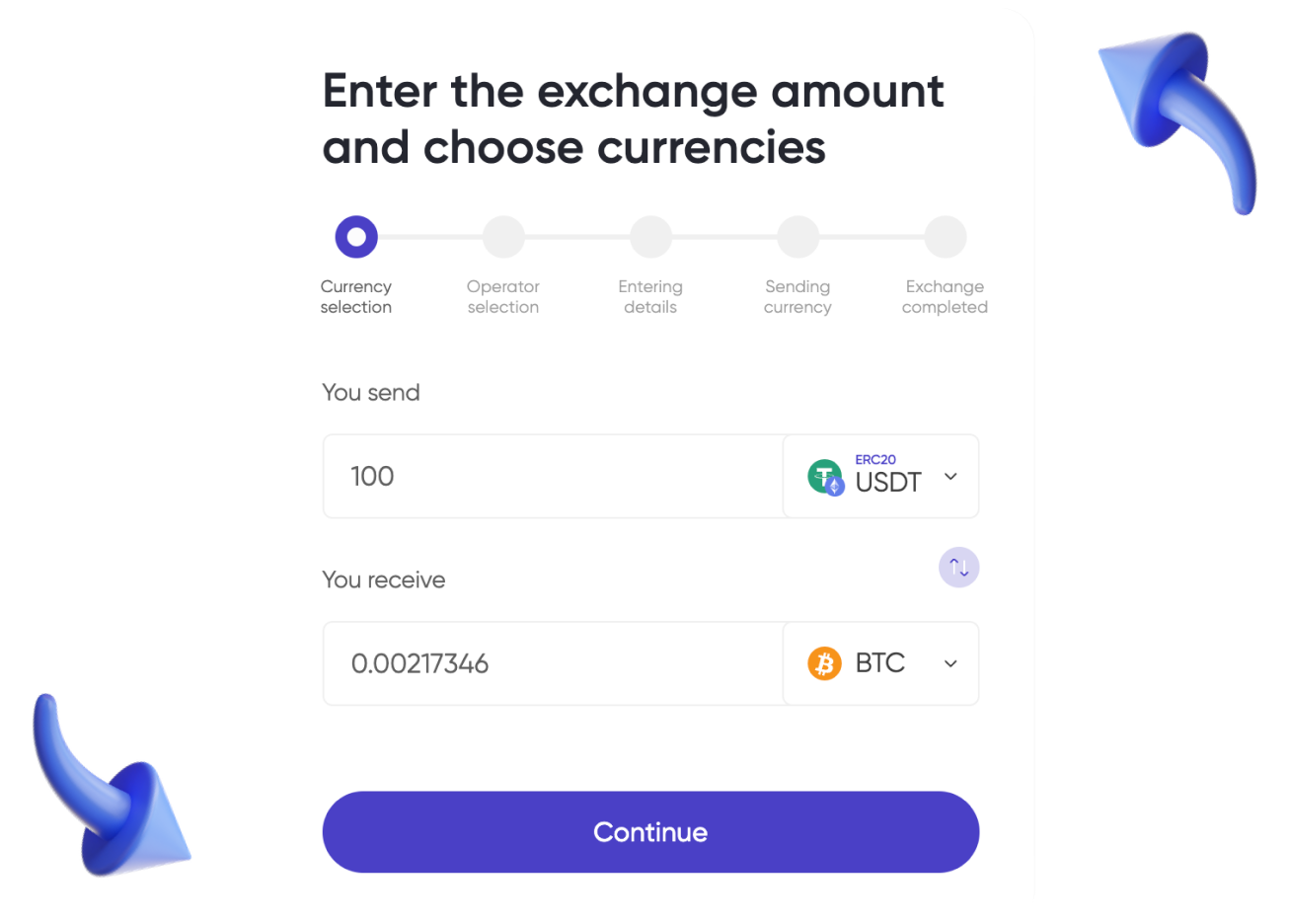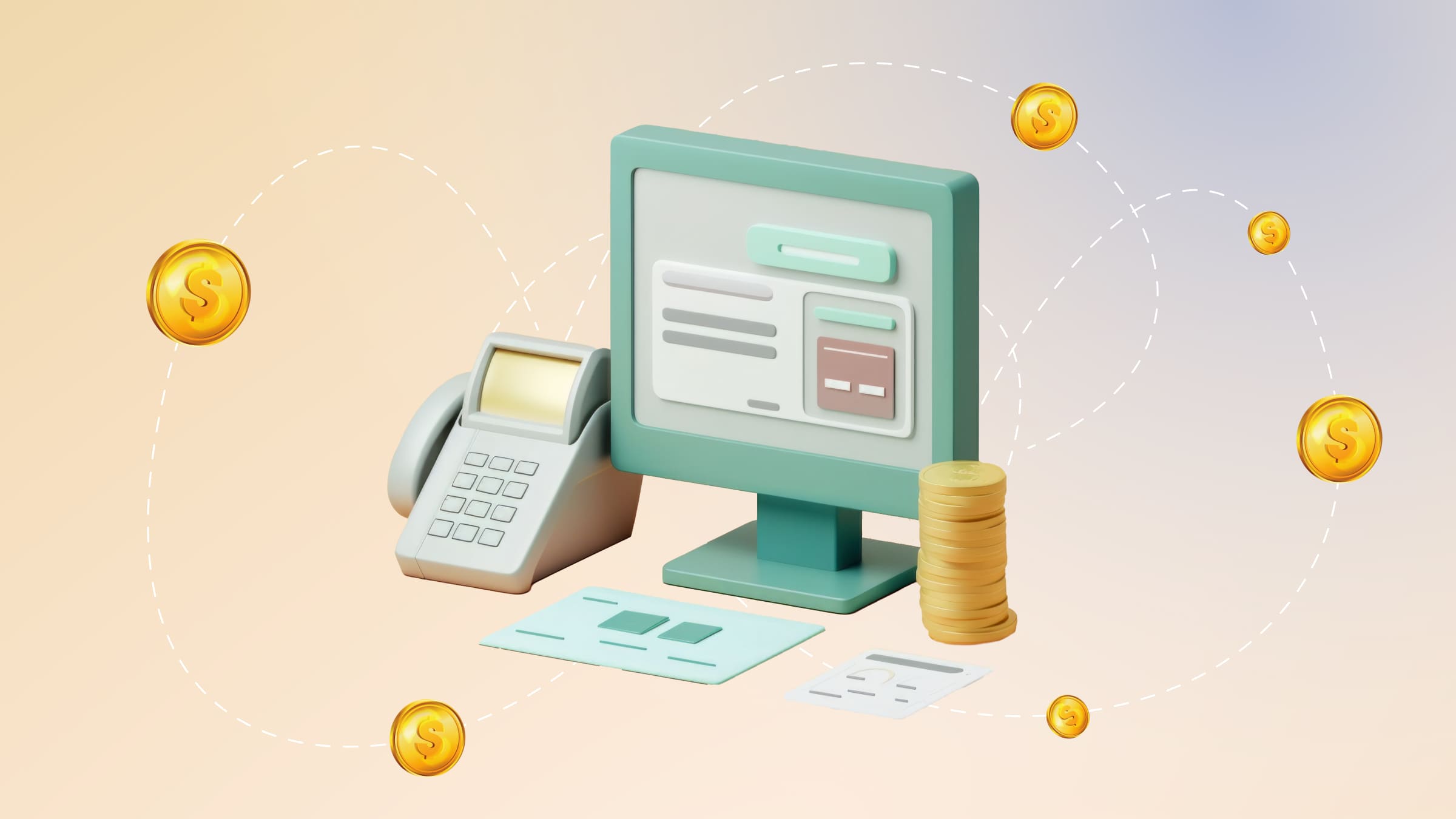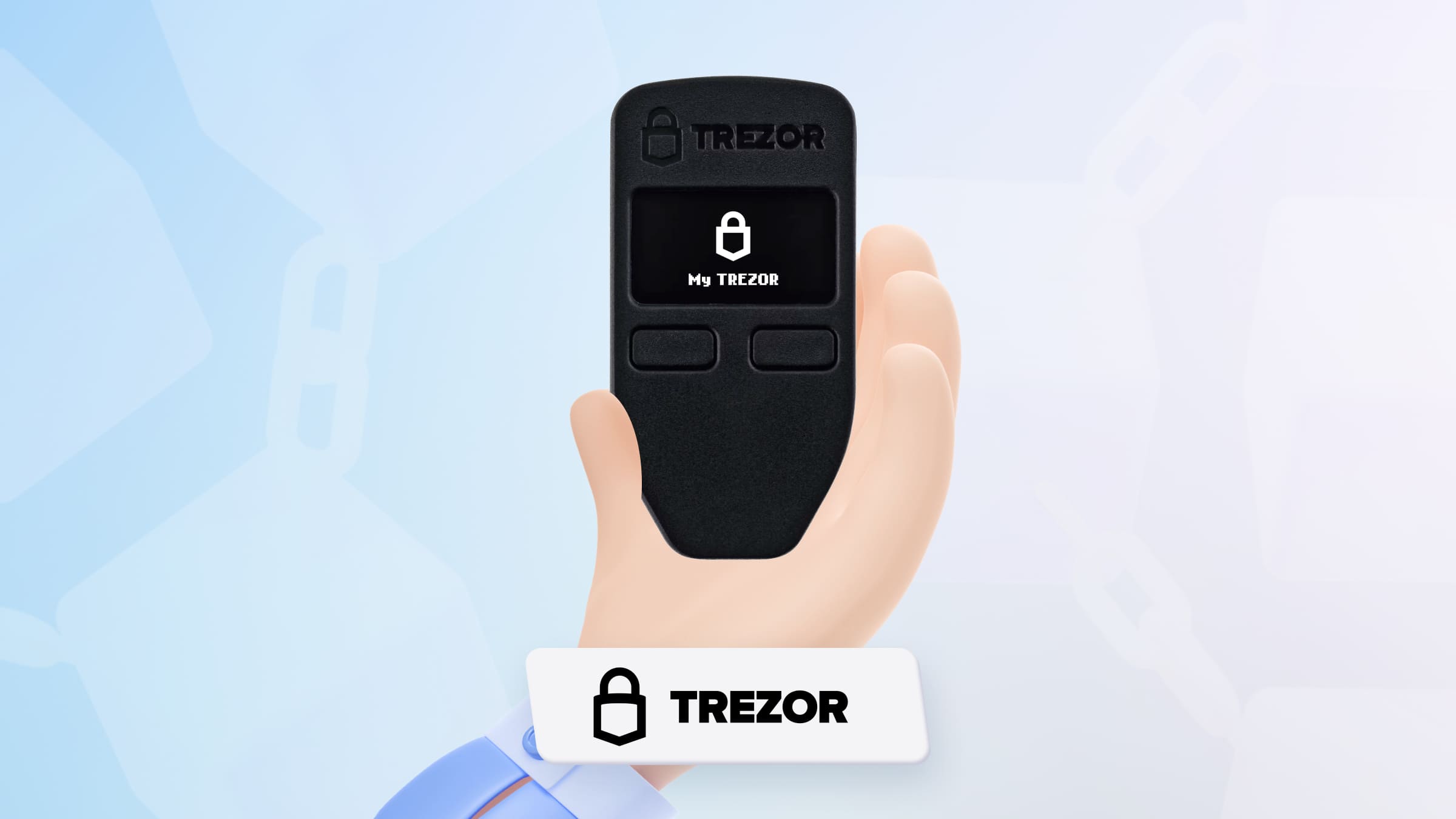Owners of online stores may face difficulties working with international payment systems. However, there is a quite simple solution — accepting payments in cryptocurrency.
Ethereum, or ETH, is an excellent payment option that can be used to pay for any goods and services. The ecosystem provides complete independence, information authenticity, and eliminates manipulation and fraud during transactions. Moreover, there is no need to reinvent the wheel, as ready-made integration options have long been developed for anyone interested.
What is Ethereum?
Ethereum, also known as Ether, is the second most valuable and popular cryptocurrency after Bitcoin. Its concept was introduced in 2013 by Russian-Canadian programmer Vitalik Buterin, who later received the World Technology Award and a $100,000 grant for his idea. The Ethereum network was launched in 2015 and succeeded in fulfilling the developers' vision.
Ethereum is a blockchain used to create decentralized online services – applications without a single control center. It relies on smart contracts as the foundation for its operation. Ethereum is a protocol that enables the deployment of decentralized applications and ensures their independence. No intruders can gain full control over transactions or exploit the structure for their own purposes.

Part of the Ethereum ecosystem is its own cryptocurrency, which is used for exchanging value based on a unified exchange rate. This payment instrument is known as ETH. Theoretically, the decentralized Ethereum network can create and run various codes, and their operation is expected to be unstoppable. It is precisely due to these broad prospects that Ether has gained significant demand and popularity today.
Ethereum operates on the Proof-of-Stake algorithm that allows users to earn from freezing funds in their accouts. This option is called staking and we've devouted an article to it.
What Is the Difference Between Ethereum and Bitcoin?
Bitcoin is suitable for storing funds. Though, the money can also be invested, lent, loaned, and so on. In contrast to Bitcoin, Ethereum allows for the creation of smart contracts to execute these operations. Thus, Ethereum has become the second most popular cryptocurrency.
Smart contracts serve as the foundation for a new economic ecosystem where neither governments nor individual banks can have sole authority. Essentially, a smart contract is a piece of digital code embedded in the Ethereum blockchain that contains the conditions of its execution. Once these conditions are met, the transaction is automatically carried out.
Similar to a legal, a smart contract ensures that both parties receive what was promised. However, in this case, the guarantee is not provided by a court or any similar government entity subject to human factors such as bribery. The guarantee is provided by a fragment of digital code — a program that is impartial, free from human influence, and based on pure mathematics.

A smart contract operates the same as fundraising on a crowdfunding platform. However, in this case, funds are not transferred to third parties, and the digital code can be viewed by every participant in the ecosystem, making it completely transparent.
How Does the Ethereum Blockchain Work?
The Bitcoin blockchain stores the history of transactions, indicating how many Bitcoins were transferred from one wallet to another. In contrast, the Ethereum blockchain stores the states of wallets at a specific moment, indicating how much Ether is present in each of them. Therefore, Ethereum functions as a state machine for transactions. Changes within this machine, like any other cryptocurrency, occur when new operations are generated.
As for the creation of new blocks, in Ethereum, the process is similar to Bitcoin. Only it happens every fifteen seconds instead of ten minutes. Miners are engaged in solving a computational problem, and the miner who can add a new block to the chain the fastest will be rewarded.
How Are Transactions Conducted in Ethereum?
Everything that happens within the blockchain is recorded in real time. Each node — a computer running Ethereum software — holds a stored copy of the complete history with all the state changes. The database synchronizes through a network where there is no central node. This is what makes Ethereum independent and open to every user with internet access.
The decentralization of the system allows users to access all the information about trasactions in the network. There is a special service for doing this — Etherscan. Learn more about the platform in our article.

For all smart contracts that facilitate transactions within the Ethereum blockchain, gas is used. Gas is an additional payment instrument primarily designed for executing contracts. The cost of gas is a variable that is influenced by miner activity. When the network is congested, gas becomes more expensive, and when the load is low, the price per unit decreases.
Gas (referred to as network fees or «gwei» in other blockchains) is required to execute each contract. The more complex the operation, the more gas is needed to perform it. Therefore, gas can be seen as a numerical equivalent of the computational resource used. Initially, one unit of ETH corresponds to 1 billion gas. During Ethereum transactions, participants pay the cost of ETH in the form of gas, and since it constantly fluctuates, the cryptocurrency itself continually acquires a new price.
The Ethereum ecosystem also enables participants to create their own tokens. The ERC-20 standard is used for these tokens, providing a unified format that makes user-created smart contracts compatible with each other. These tokens can be issued as independent cryptocurrencies, shares, or other assets within their own ecosystem while benefiting from the reliability of the ETH.
How Can Online Payments Be Accepted in Ethereum?
The owner of an online store can choose how to accept cryptocurrency payments. There are several methods available.
Cryptocurrency Wallet
By providing the wallet details, anyone can make a payment with cryptocurrency. The wallet address can be entered as a string of characters or scanned using a QR code.

However, it is important to remember that blockchain transactions are anonymous and therefore do not provide an opportunity to identify the wallet holder. So, this option is more suitable for platforms where exclusive trading takes place and there is no doubt about the authenticity of the seller. It is also worth considering how to protect the cryptocurrency wallet from hacking.
We've devoted an article to wallets that support transactions in Ethereum.
Custom Payment Module
The acquiring module converts payment processing into a partially automatic. By linking transactions to orders, the risk of confusion is minimized, ensuring that sales are processed sequentially with actions following one another. However, it requires considerable effort and time before such a module can be obtained and implemented. Therefore, this option is most suitable for websites that consistently handle a large volume of purchases and sales.
Crypto Processing
Crypto processing is a simple and relatively inexpensive way to secure payments in Ethereum. In this method, the platform connects to a crypto processing service, which acts as a payment aggregator and takes care of payment-related operations. Providing external services such as a cryptocurrency payment service, companies usually charge relatively low commissions (usually ranging from 0,5% to 2%) for processing. Software in the form of buttons and modules is used for the actual operation, enabling the merchant to accept payments in Ethereum and other cryptocurrencies.
How to Connect Crypto Processing?
An example of a user-friendly crypto processing service for both buyers and sellers is CryptoCloud. The moderation process is fast, and users do not need to verify their identity to start accepting payments.

Several advantages of CryptoCloud:
- Besides Ethereum, it also works with Bitcoin, Litecoin, USDT, and other cryptocurrencies.
- It can be integrated into websites using various methods, including ready-made plugins for popular website platforms (Getcourse, Tilda, Drupal, Woocommerce, Opencart, etc.) — simply copy and paste the code onto the page.
- Merchants can pass on payment of service and blockchain network fees to the buyer.
- Users can issue invoices in Ethereum or other desired currencies.
Read the full review of the service in the article.
CryptoCloud is accessible both on computers and mobile phones, allowing users to utilize it anytime and anywhere. Withdrawals can be made within a maximum of 30 minutes. The commission fee starts from 0.4%, minimizing additional expenses.
There are several options for managing Ethereum received through crypto processing. Crypto holders can:
- Keep Ethereum directly in the account for future use.
- Pay business partners using cryptocurrencies, utilizing them directly in business operations, similar to other payment methods.
- Invest Ether directly, i.e. to invest it in one or another project.

By choosing a suitable crypto processing service, it would take less than an hour to integrate the plugin into your website, and then you can start accepting payments right away. Even if you don't have a website, you can still receive payments by issuing invoices for payment.
Accepting Payments in Ethereum in 2023
Despite the fact that working with Visa, Mastercard, and other traditional banking payment systems has become somewhat more challenging than before, there is a solution — accepting international payments in the form of cryptocurrencies, including Ethereum. The decentralization of cryptocurrencies allows for independence from any speculations, as the blockchain securely stores all wallet states, ensuring the authenticity of the information.
There are various ways to set up payment acceptance in cryptocurrencies, with the most convenient being crypto processing. The CryptoCloud service enables the integration of a ready-made module for accepting payments in ETH and other cryptocurrencies on your website in less than an hour.

